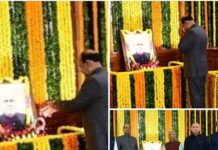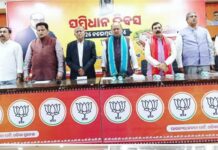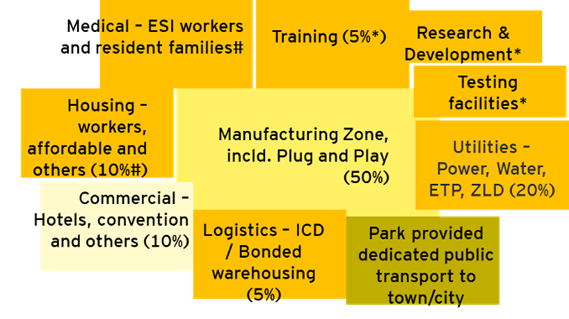By Our Correspondent
NEW DELHI/BHUBANESWAR: With a view to realise the vision of Hon’ble Prime Minister Shri Narendra Modi of building an Aatmanirbhar Bharat and to position India strongly on the Global textiles map, the Government has approved the setting up of 7 PM MITRA (पीएम मित्र) parks as announced in Union Budget for 2021-22.
PM MITRA (पीएम मित्र) is inspired by the 5F vision of Hon’ble Prime Minister. The ‘5F’ Formula encompasses – Farm to fibre; fibre to factory; factory to fashion; fashion to foreign. This integrated vision will help furthering the growth of textile sector in the economy. No other competing nation has a complete textile ecosystem like us. India is strong in all five Fs.
The 7 Mega Integrated Textile Region and Apparel Parks (PM MITRA) (पीएम मित्र) will be setup at Greenfield / Brownfield sites located in different willing States. Proposals of State Governments having ready availability of contiguous and encumbrance-free land parcel of 1,000+ acres along with other textiles related facilities & ecosystem are welcome.
Maximum Development Capital Support (DCS) of ₹ 500 crore to all Greenfield PM MITRA and a maximum of ₹ 200 Crore to Brownfield PM MITRA (पीएम मित्र) will be provided for development of Common Infrastructure (@30% of the Project Cost) and ₹ 300 Crore of Competitiveness Incentive Support (CIS) will also be provided to each PM MITRA (पीएम मित्र) park for early establishment of textiles manufacturing units in PM MITRA (पीएम मित्र). State Government supports will include provision of 1,000 Acre land for development of a world class industrial estate.
For a Greenfield PM MITRA (पीएम मित्र) park, the GOI Development Capital Support will be 30% of the Project Cost, with a cap of ₹ 500 Cr. For Brownfield sites, after assessment, Development Capital Support @30% of project cost of balance infrastructure and other support facilities to be developed and restricted to a limit of Rs. 200 Crore. This is in a form of viability gap funding to make the project attractive for participation of private sector.
The PM MITRA (पीएम मित्र) parks will have following:
Core Infrastructure: Incubation Centre & Plug & Play facility, Developed Factory Sites, Roads, Power, Water and Waste Water system, Common Processing House & CETP and other related facilities e.g. Design Centre, Testing Centres etc.Support Infrastructure: Workers’ hostels & housing, logistics park, warehousing, medical, training & skill development facilities
PM MITRA (पीएम मित्र) will develop 50% Area for pure Manufacturing Activity, 20% area for utilities, and 10% of area for commercial development. A schematic representation of the PM MITRA (पीएम मित्र) is illustrated below:
PM MITRA (पीएम मित्र) park will be developed by a Special Purpose Vehicle which will be owned by State Government and Government of India in a Public Private Partnership (PPP) Mode. The Master Developer will not only develop the Industrial Park but also maintain it during the concession period. Selection of this Master Developer will happen based on objective criteria developed jointly by State and Central Governments.
SPV in which State Government has majority ownership will be entitled to receive part of the lease rental from developed industrial sites and will be able to use that for further expansion of textiles industry in the area by expanding the PM MITRA (पीएम मित्र) Park, providing Skill Development initiatives and other Welfare measures for workers.
Government of India will also provide a fund of ₹ 300 Crore for each PM MITRA (पीएम मित्र) Park to incentivize manufacturing units to get established. This will be known as Competitiveness Incentive Support (CIS) and will be paid upto 3% of turnover of a newly established unit in PM MITRA (पीएम मित्र) Park. Such support is crucial for a new project under establishment which has not been able to break even and needs support till it is able to scale up production and be able to establish its viability.
Convergence with other Central Government and State Government Schemes is available as per their eligibility under the guidelines of those schemes. This will enhance the competitiveness of the textiles industry, by helping it in achieving economies of scale and will create huge job opportunities for millions of people. Leveraging Economies of Scale, the scheme will help Indian companies to emerge as Global Champions.





























